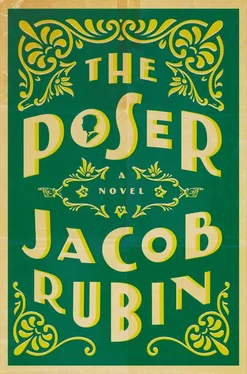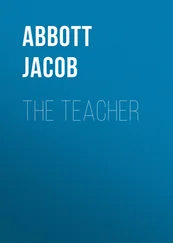Previously I had used it sparingly: to verify, say, a look I’d caught on the traffic-scanning face of a jaywalker. I think I saw it as a cheat. But after we announced that I was running for governor, I began to rely on the mirror, to practice in front of it in the morning, usually after reading an article about me, in order to solidify certain details. How I looked flipping the page on the dais, for instance, or sighing.
As I soon discovered, however, the bedroom mirror wasn’t big enough. I made the request to Frankie and Lou, and it was taken care of: a larger, multipaneled mirror replaced the length of the wall opposite my bed, so I could examine the full sweep of a gesture. Even this was insufficient, though, and, upon my request, was expanded again. Wrapping around the bed, a semicircular mirror came to be installed, but this, too, disappointed me — seemed to emphasize the lack of mirror elsewhere — and I eventually told Frankie and Lou that I wanted the entire room mirrored, three hundred sixty degrees, and the ceilings, too.
The Chateau Ravine staff, who already considered me a permanent resident (informally referring to the property as the Knott Suite), was happy to oblige. It was achieved with surprising speed, but my first night in the mirrored room, I could barely sleep, kicking the sheets, the innumerable Giovannis spitting it all back so that I had to shut my eyes, the bursting feeling coming again. I vowed to call Mama first thing in the morning, to book a flight back to Sea View, when at some hour sunlight nosed the edge of the curtains, which I parted, flooding the room in angles, and I understood the mirrors were no mistake at all but a miracle.
For there are innumerable points of view, of course. A man might choose to see you from a variety of locations in the stands, and it was best to learn how you might appear to him standing wherever he was. Soon I had props brought in from the lot: a dais, a set of stairs, a small desk on wheels. At my request, Julie Dark joined me in that chamber, part of my effort to be comprehensive. Once she was a tall Swede with a lightly cruel sense of humor. Another a woman with black bangs who kept stroking my cheek with her finger. And yet I soon found that sex itself was too homely an act to bear to watch in the mirrored room, and I asked Julie to simulate more practical positions, such as shaking my hand or asking me a question at close range, with that upraised, auditor’s tilt of the head.
So when our advertisements began to appear on the radio and on television, I was not in the least surprised by how I sounded or looked. When I posed at the desk, I knew how I appeared to the camera crew, sitting upright, as I was, my hands clasped to connote both firmness and fairness. When I rubbed the hair of the towheaded kid at the library of the kindergarten, I knew how my slight, seemingly unconscious grin must have charmed the long-skirted teacher, was in fact watching myself as I did it. I perceived how immersed and engaged I must’ve seemed reading The Forgotten Cat , an illustrated book, better than any of the actual onlookers did in that school library. Better than that prim teacher, who rested her hands above her knees when bending to scold her students. Better than Frankie or Lou standing against the yellow wall. Better than Max, who sat in an undersized wooden chair, biting his nail with the impatience that ruled him more and more. Better even than Bernard, whose grin seemed the tic of an actor whose films I’d seen too many times.
The mailbox at the end of my block gulped down the letter. I regretted the action instantly, with the kind of trembling regret that occasions a vital risk. The library made me think of her, but it was more than that. I could perform for every soul in the world, and it wouldn’t count unless she saw it.
I sent a brief note with clippings. She responded that week.
Yes, I’ve followed this, of course. You know how I feel about this Bernard, you know quite well, and I never thought you one for politics. But I need to see you, Giovanni. I will be quiet as a mouse.
The day I received this note I gave an address at a soon-to-be-shuttered oil derrick on the outskirts of Palm Haven, a desert town an hour outside of the city. The men wore hard hats and blackened gloves, their expressions yoked together by rage. My voice echoed among the black machinery, the brown-red hills of the desert visible beyond the derrick chuckling with its work like a railroad car. The whole time I was speaking, I was wishing Mama were there, but, no, it wasn’t that — it was that I had mistakenly felt her presence, I understood only then. When I raised clasped hands with Senator Stengel, for instance, or leaned in to hear a voter’s nervously muttered name, always I felt she was there, her eyes hovering above the events, and only then, at the mouth of the desert, understood that she was not and had never been.
When I returned to the trailer, Lou said I had a visitor. Bernard encouraged these callers as part of our effort to win votes. By then I relied on a playbook of phrases and questions. Depending on what was first said, the conversation, like a game of chess, could branch out to a limited number of topics.
“Guy says he’s an old friend,” Lou told me.
At that, a tall, rakish figure entered the trailer. He used a cane, wielded for the purposes of style, it was clear. His long face passed in and out of the trailer’s slatted shadows, and as he approached, I found that my heart was beating quickly. When he got closer, I saw he was tall and lean, wearing a canary-yellow suit. Soon he settled into the chair. There was a crease, a dissonant ring in his eyes, his features gaunt and time-bitten. I had no old friends.
“Hey, pal,” he said and stuck out his hand. “Don’t recognize a buddy?”
“I’m afraid I don’t.”
“Look at you. Damn, just look at you.” He smiled. “Big-time politico and all that.” He added, “Jesse Unheim. From Sea View.”
“Jesse Unheim,” I said. This was a technique Bernard used: saying a person’s name. I felt myself relax. I was going to relish dismissing him.
“Remember the principal’s office? Always you and me stuck down there all but banging our heads for sheer never-ending boredom. God, those were times. Whole time I’m thinking, why they got me down here with this freak. No offense. I mean, now look at you. Heard the speech today. I’m thinking, gee whiz, look at this guy.”
“How can I help you?”
“Well, I live out here. Acting a little. Like you. I mean, not like you . Trying to. Anyhoo, one day I flip open the paper and what do I see? Giovanni Bernini’s giving a big speech right in Palm Haven, my neck of the woods. And I thought, well, how about I pay him a little visit. Have us a parley. I mean, jeez, bud. Haven’t seen you in, what, fifteen years?”
“Long time,” I said.
“Too long, too long.” He scratched his nose with a slightly opened mouth. “So, listen, your mom and I, you mighta heard, had a bit of a dispute. I know you’re a busy guy, but this thing — it wasn’t quite finished.”
“I did hear about that,” I said. “As I understand it, you left town before the jury came to a decision.”
“Well, my lawyer was on loan, you see, from some interested parties out here. And I could chew your ear off and so on, but my point is—” He exhaled. “See, I just need a little something. A piece. And you and your mom won’t hear a peep from me no more.”
“Do you think it’s my obligation to give it to you?”
“No, no, I don’t mean it that way at all. See, your mom, well, she’s the one who split up that dough, right? What was rightfully mine. Now, I saw you coming into town and I figure to myself, why not make this simple for all parties involved. Payment won’t be felt on your end one bit. I’m talking about eight grand.”
Читать дальше












